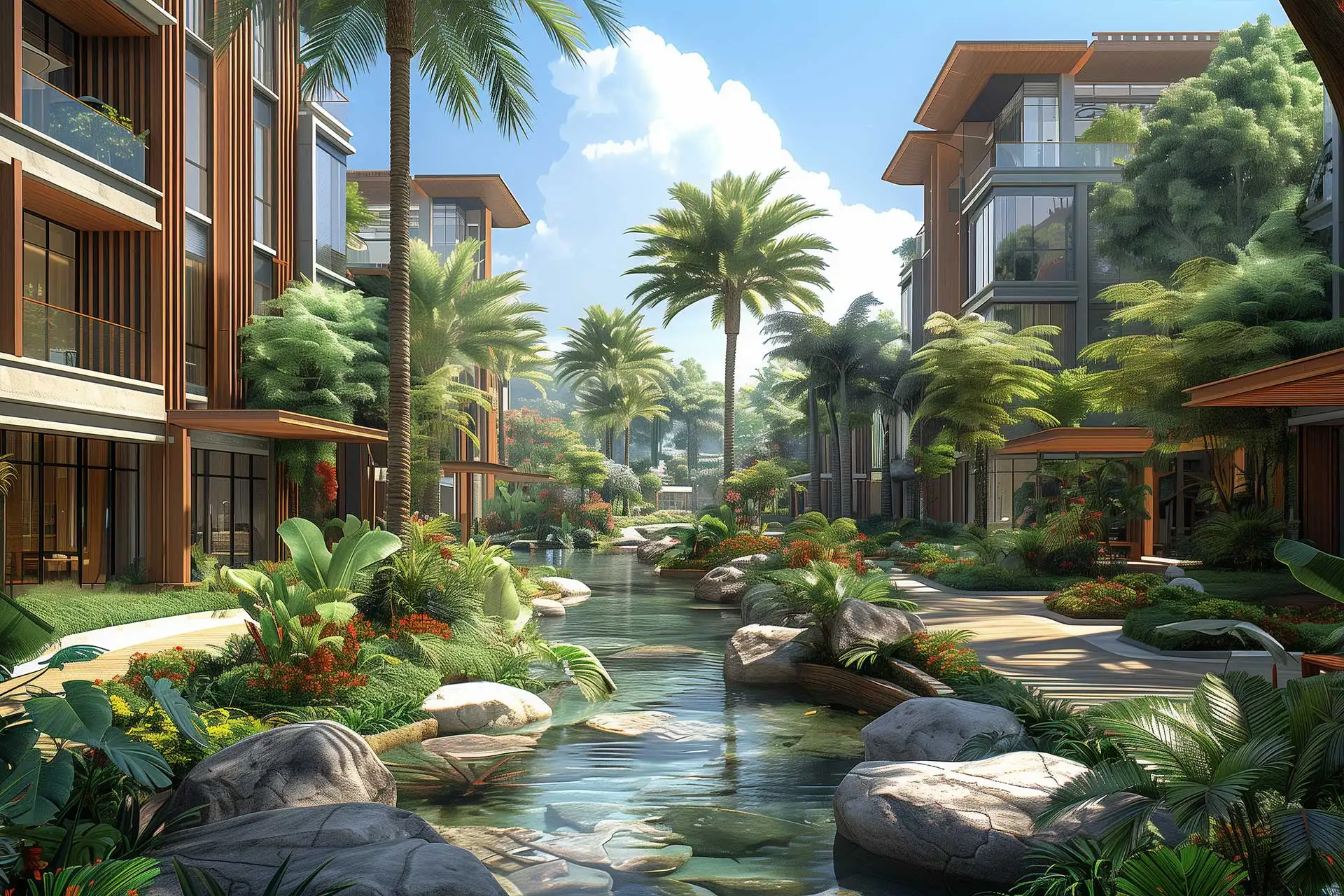
The Importance of Green Spaces in Urban Development
Green spaces, including parks, gardens, and green rooftops, are crucial in enhancing the quality of life in urban environments. They provide numerous benefits to residents and the community.
Environmental Benefits

Green spaces help mitigate urban heat islands by cooling the air and providing shade. They improve air quality by filtering pollutants and producing oxygen. Additionally, these areas support biodiversity by providing habitats for various plants and animals.
Health and Well-Being

Access to green spaces promotes physical activity, reducing the risk of chronic diseases. These areas offer residents a place to relax and unwind, which can reduce stress and improve mental health. Studies have shown that proximity to nature enhances overall well-being and happiness.
Social Interaction

Green spaces serve as communal areas where people can gather, socialize, and build community. They provide a venue for recreational activities, events, and social interactions, fostering stronger community bonds.
Economic Value

Green spaces can increase property values and attract investment. They enhance the aesthetic appeal of urban areas, making them more desirable places to live and work. Well-maintained green areas also encourage tourism and contribute to the local economy.
Incorporating green spaces into urban development is essential for creating sustainable and livable cities. Urbis is committed to integrating these vital areas into our residential projects, ensuring a balanced and harmonious urban environment.
